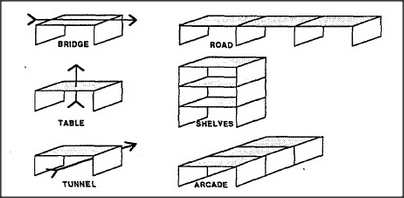


Logic is the word we use for certain ways to chain ideas. But I doubt that pure deductive logic plays much of a role in ordinary thinking. Here is one way to contrast logical reasoning and ordinary thinking. Both build chainlike connections between ideas. The difference is that in logic there's no middle ground; a logic link is either there or not. Because of this, a logical argument cannot have any weakest link.

Logic demands just one support for every link, a single, flawless deduction. Common sense asks, at every step, if all of what we've found so far is in accord with everyday experience. No sensible person ever trusts a long, thin chain of reasoning. In real life, when we listen to an argument, we do not merely check each separate step;
we look to see if what has been described so far seems plausible. We look for other evidence beyond the reasons in that argument. Consider how often we speak of reasoning in terms of structural or architectural expressions, as though our arguments were like the towers Builder builds:
Your argument is based on weak evidence. You must support that with more evidence. That argument is shaky. It will collapse.
In this way, commonsense reasoning differs from logical reasoning. When an ordinary argument seems weak, we may be able to support it with more evidence. But there is no way for a link inside a logic chain to use additional support; if it's not quite right, then it's absolutely wrong. Indeed, this weakness is actually the source of logic's own peculiar strength, because the less we base our conclusions on, the fewer possibilities can exist for weaknesses in our arguments! This strategy serves mathematics well — but it doesn't help us much in dealing with uncertainties. We cannot afford to stake our lives on chains that fall apart so easily.
I do not mean to say that there is anything wrong with logic; I only object to the assumption that ordinary reasoning is largely based on it. What, then, are the functions of logic? It rarely helps us get a new idea, but it often helps us to detect the weaknesses in old ideas. Sometimes it also helps us clarify our thoughts by refining messy networks into simpler chains. Thus, once we find a way to solve a certain problem, logical analysis can help us find the most essential steps. Then it becomes easier to explain what we've discovered to other people — and, also, we often benefit from explaining our ideas to ourselves. This is because, more often than not, instead of explaining what we actually did, we come up with a new formulation. Paradoxically, the moments in which we think we're being logical and methodical can be just the times at which we're most creative and original.